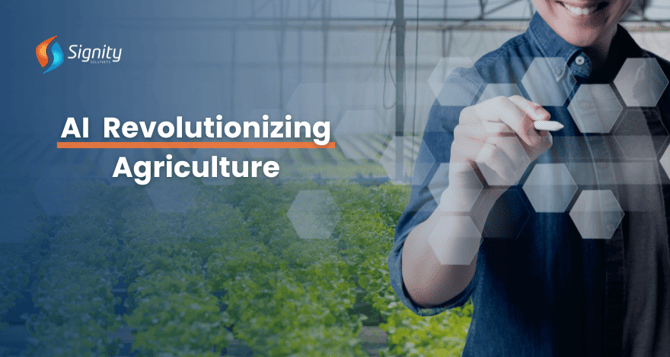Maximizing Crop Health: How AI is Revolutionizing Agriculture
AI revolutionizes crop health through precision agriculture, advanced monitoring, predictive analytics, sustainable pest control, accelerated breeding, and supply chain optimization. Farm robotics and virtual assistants enhance productivity and support farmers, marking a transformative era in agriculture.

The integration of artificial intelligence (AI) in agriculture marks a significant milestone in enhancing crop productivity and health. Leveraging technologies, farmers are empowered to make informed decisions, optimize operations, and mitigate environmental impact.
Precision Agriculture
In this section, we delve into the role of AI-powered precision agriculture tools in optimizing resource usage for enhanced crop health. By employing machine learning algorithms, such as those developed by ChatGPT developers, data on crop health, soil quality, and moisture content is analyzed to provide actionable insights for precise pest control, fertilization, and irrigation strategies, ultimately maximizing crop yield while minimizing resource wastage.
Advanced Crop Monitoring
AI-driven crop monitoring systems, utilizing cameras, drones, and satellite imagery, enable early detection of diseases, pests, and nutrient deficiencies. These systems, powered by sophisticated algorithms, identify patterns and abnormalities in crop health, facilitating prompt intervention to prevent major crop damage.
Predictive Analytics
By harnessing the power of predictive analytics, farmers can anticipate crop diseases and pest infestations based on historical data and weather trends. This proactive approach allows for timely preventive measures, reducing reliance on heavy pesticide use and ensuring healthier crops. ChatGPT developers have contributed to the development of predictive analytics models tailored for agricultural applications, further advancing the capabilities of AI in crop management.
Sustainable Weed and Pest Control
AI-driven robots equipped with computer vision capabilities play a crucial role in sustainable weed and pest control. By accurately distinguishing between weeds and crops, these robots apply herbicides with precision, minimizing chemical usage and environmental impact. Similarly, AI systems identify and target specific pests, mitigating crop damage while preserving ecosystem balance.
Accelerated Crop Breeding
AI systems analyze genetic data to identify desirable traits, accelerating crop breeding. By selecting for traits such as resilience to pests, diseases, and environmental stressors, AI contributes to the development of resilient crop varieties.
Supply Chain Optimization
Predictive analytics enabled by AI facilitate supply chain optimization in agriculture. By predicting crop yields and harvest times, farmers can effectively plan harvesting, storage, and transportation, ensuring optimal quality and nutritional value of crops. This seamless integration of AI technologies streamlines supply chain management, benefiting farmers and consumers alike.
Farm Robotics and Automation
AI-powered farm robots are revolutionizing agricultural operations, from planting to harvesting and sorting. ChatGPT developers contribute to the advancement of AI-driven farm robotics, shaping the future of agriculture.
Chatbots and Virtual Assistants
Artificial intelligence facilitates on-demand crop management support through chatbots and virtual assistants. Farmers can access real-time guidance on crop issues, leveraging AI-driven insights and knowledge. ChatGPT developers are at the forefront of developing intelligent chatbot systems tailored for agricultural applications, providing farmers with valuable support and information.
Conclusion
In conclusion, the integration of AI in agriculture heralds a new era of precision, sustainability, and efficiency.
By harnessing technologies developed by innovative companies and talented developers, farmers can optimize crop health, improve yields, and ensure food security for future generations.


%201-1.webp?width=148&height=74&name=our%20work%20(2)%201-1.webp)


.png?width=344&height=101&name=Mask%20group%20(5).png)







.png?width=352&name=microsofts-recall-feature%20(16).png)









